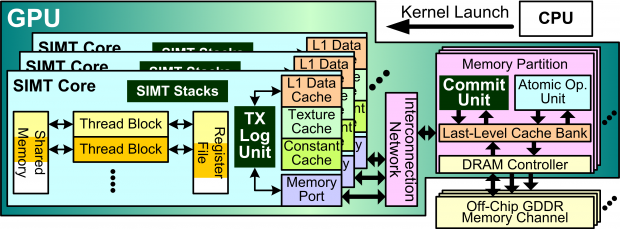
Wilson Fung, a Ph.D. student working under the supervision of Dr. Tor Aamodt, has become the first Canadian student to win the NVIDIA Graduate Fellowship.
Wilson was selected for this award as one of twelve Ph.D. students from hundreds of applicants from three dozen countries around the world. His current research focuses on architecture and microarchitecture innovations to efficiently support programming models that robustly exploit irregular parallelism, such as transactional memory, on manycore accelerators such as GPUs. Fung has said of his research endeavors, “I am interested in anything that can improve computing power via architecture so as to enable new applications for computers. There are just too many interesting problems in computer architecture waiting to be solved!”
Some of the topics that interest Fung the most are General Purpose Computing on GPU, GPU Performance Simulator, and Architecture for QCA. He asks challenging questions about current GPU research such as: Is it possible to harness this computing power for purpose other than 3D rendering? Can we modify the GPU architecture so that it can do well in both 3D rendering and other general purpose computing?
Chris Malachowsky, co-founder of NVIDIA and senior vice president of research said about the Graduate Fellowship Program, “ We’re delighted to support the work of these exceptional graduate students. Their efforts will help define the future of computing.” NVIDIA supports the academic exploration of research topics in the areas of visual, parallel, and mobile computing.
Read More:
Wilson has just won a “top pick” award from IEEE Micro magazine for his article “Hardware Transactional Memory for GPU Architectures” co-authors, Inderpreet Singh, Andrew Brownsword, and Tor M. Aamodt. The diagram above is used in this paper to describe high-level GPU architecture.
